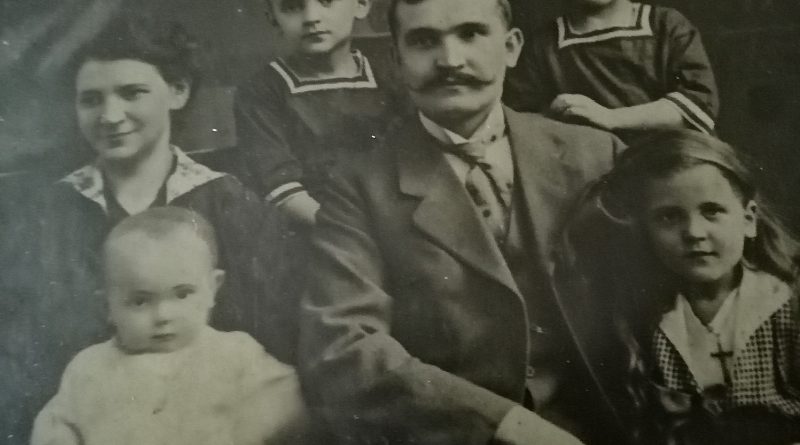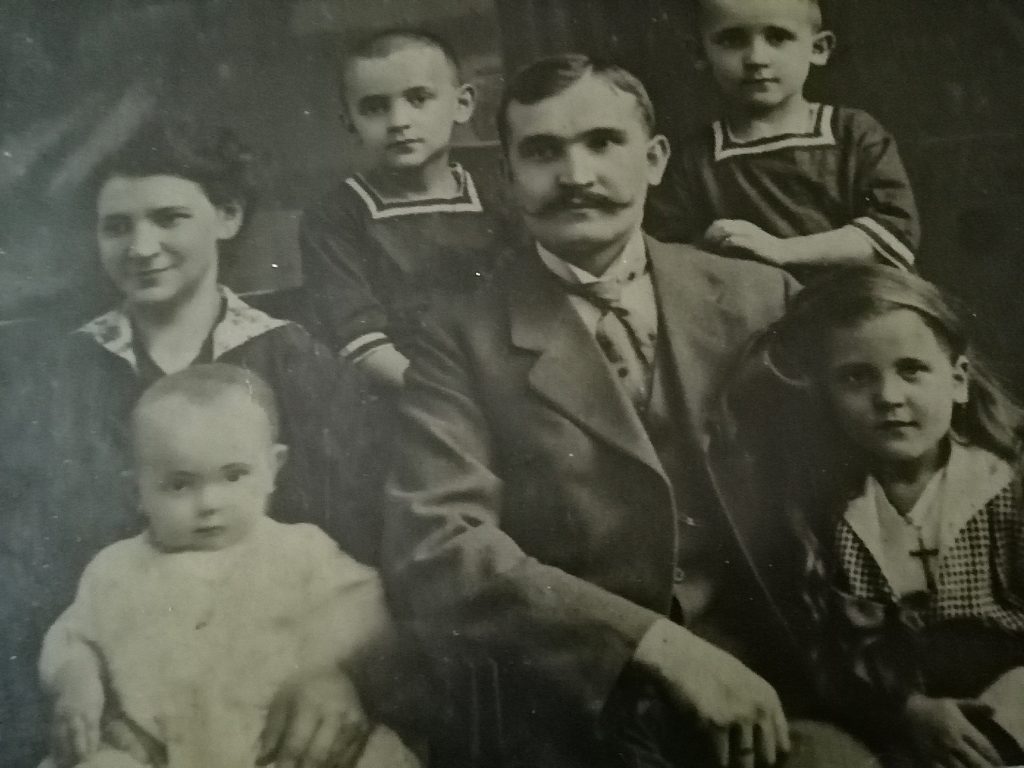Ch. (K-H) Borowsky Heinrich Joseph KRAK0WSKY (1887- 1963) Silesian Philanthropist
Heinrich Joseph KRAK0WSKY (1887- 1963)
Silesian Philanthropist – Fearless Defender of Human Dignity and Life
In recent years, several Silesians of German or Polish socio-cultural routes have been heralded for their cultural, social, artistic, scientific, political or religious achievements in the outstanding encyclopedic series: Ślązacy od czasów najdawniejszych do współczesności. This publication, under professor Joanna Rostropowicz’s competent and committed direction, constitutes a sine qua non source for studying Silesia’s complex history, multiculturalism, diverse political and religious loyalties, and continuous striving for a unique identity.
However, it has been noticed that the biographies in this encyclopedic series predominantly praise artists, educators, churchmen, public officials, and well-connected individuals whose actions demonstrate their ex-officio professional activities predominantly in accord with public expectations.
This biogram, based on intensive interdisciplinary research of vast written and oral documents, attempts to present and recognize an “ordinary Silesian ” whose steadfast genuine altruistic professional and personal activities benefited many people .
Heinrich Joseph Krakowsky reached out to people in material, psychological and spiritual need; fearlessly defended human dignity; and successfully saved lives endangered by discrimination, ethnic supremacy, or Nazi policies. His extraordinary altruism was self-motivated without ex-officio mandates, advanced formal education or economic or political connections. as well as no consideration of personal gains or losses.
His self-motivated altruism was inspired by vivid family role models, his outstanding personality, Christian humanism, and bonum commune principles. This was evident in his genuine philanthropy to Silesians and other people in material, psychological, or spiritual need. He did so with no consideration of people’s background or their social, political and religious orientation, netherof personal gains or losses.
Sarah Gould, daughter of a neighbor and Holocaust survivor sheltered by Heinrich Krakowsky, summarized his heroic merits when she met Krakowsky’s grandson. ( Charles KH Borowsky) at an international conference in TEL AVIV, 2015) ;
Heinrich Joseph Krakowsky ( after 1945 Henryk Krakowski) was born on March 5,1887, in a small Silesian village- Possnitz/Posucice, near Leobschütz / Glubczyce – into a traditional German farmer family, originally from the Austro-Hungarian Empire. Unfortunately, shortly before Heinrich’s birth, his father died. The cause of his death is unknown.
Heinrich’s mother – Catharina- lived and worked on the farm of her parents- Joseph and Thekla ( Mozler) Krakowsky.
His Mother and Grandparents, well respected in Posnitz and surrounding area, brought up young Heinrich diligently and cared for education fostering creativity, freedom and responsibility. The principal of the local one – room elementary school , the pastor of the Catholic Saint Lawrence church, and the community of Possnitz friendly supported the family’s efforts in many ways. Heinrich frequently acknowledged it : „I grew up in the spirit of freedom, but my mother and the friendly community reminded me about personal and social responsibility”
From early childhood, Heinrich was a voracious reader. Books about folk wisdom, travels, discoveries, history, culture, politics and religion were in his collection. In his childhood, and even later, Heinrich was much fascinated by stories about Till Eulenspiegel, a medieval German peasant trickster. He noticed that in the figure of Eulenspiegel, the individual gets back at society; the stupid yet cunning peasant demonstrates his superiority to the narrow minded and dishonest townsman, clergy and nobility.
From Till Eulenspiegel Heinrich learned that many people reap honors without acquiring and proving merits as Heinrich stated to his friends and associates : “Viele mit formalen Titel haben leider keine Mittel. Ihre Ansprüche sind oft übertrieben, um ihr
Ego zu bilden (Many with formal titles. Unfortunately have no proof their claims of success and contributions are often exaggerated for boosting their ego.
Heinrich regularly read the Bible and selected works by Friedrich Schiller . He studied the Bible and Schiller’s philosophy in the aspect of human dignity and life. For him, the Bible became a potent source of positive inspiration and supplied feasible role models : „The life and the example of Jesus and of the early Christian community are fundamental for every person, especially for those who claim to be Christians.” Heinrich often stated. This led to his conclusion , that human success lies in altruistic service to people people, including fearless defending of human dignity and life. but not in selfish egoistic accumulating of wealth and fame.
He stressed that “ Verba docent, exempla trahunt”
( Words teach, exemples attract) constantly strived to bring theory into practice. Thus he became a vivid role model for many people, especially his neighbors, associates, and his family
Beside his multi professional activities, he was involved in diverse social and cultural organizations.
He was very active in : Internationales Rotes Kreuz, Caritas, Oberschlesischer Verband der Freunde der Flugtauben, Rassenhunde Verband,
Important quotes from the Bible, verses from Schiller and popular addagia were found in his notebooks and posted on walls in his office. He also quoted them on respective occasions. But most important: Heinrich followed their wisdom and exemple in his daily activities. Members of his staff, friends, acquaintances, and family members learned this from Heinrich too.
That way, his personal critical and creative thinking were continuously nurtured and throughout his life..
At age 14, guided by his Grandpa’s advise and by the frequently recalled adagium: “ Handwerk hat einen goldenen Boden” pursue a career which serves people’s basic needs, Heinrich left Possnitz for Leobschitz, Neustadt, and Oberglogau in pursue of a baker career. Six years later, he earned his Backermeister und Konditormeister diplomas . Soon after, he opened his own bakery in Czekanow, near Gleiwitz.
Back in 1907, Heinrich married Pauline Thiell, the daughter of his Oberglogau Master. They had two sons ( Heinrich and Ottomar) and two daughters (Adelheid and Edith). Their children received upbringing and education preparing them well for practical careers in serving people: car mechanic, backer, office manager, dentist assistant .
Both sons were victims of WWII: Heinz Jr. died in Stalingrad, Otto – lost his arm in Smolensk.
In 1911 Heinrich moved his Family to Kattowitz. where he managed the largest and technological most advanced Silesian “ Marticke Bäckerei und Konditorei” on Mühlstraße 17. At its peak, over 100 highly qualified and satisfied personnel were employed. Heinrich not only confirmed his great mastery as baker, pastry maker, and outstanding manager but also provided optimal working conditions employees and care of their families. He also reached out to needy families in Silesia by helping with food and providing support for educating handicapped children.
(End of Part one)
Charles (Karl – Heinz Borowsky – A native of Silesia, Dr. Borowsky is a professor of sociology whose research and writing on the youth movements on the 1960s led to his expulsion from then Communist-ruled Poland. He became a faculty member at Yale University, and later the Harvard Center for Kibbutz and Communal Studies.
Today, he leads two organizations: Intermuse (promoting classical music around the world) and the International Institute for Suburban and Regional Studies. He has lectured extensively in over 80 countries, including ten universities in Germany. In addition, he has brought many acclaimed German musicians to perform in the United States.



